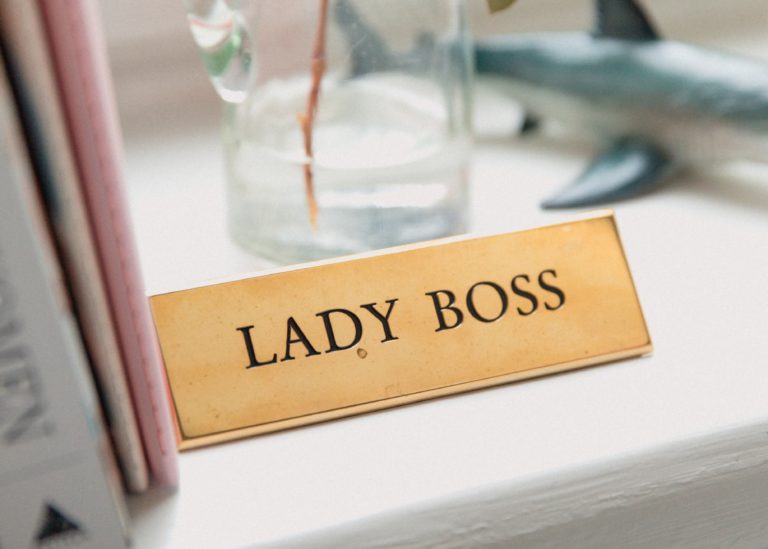How I Accidentally Sabotaged My Own Career, And How I’m Rebuilding It
“Take it from me – thinking you ‘know it all’ is like taking an express train to Disaster Town, population: you…”
We’ve all made mistakes at work, right?
From a faux pas at the watercooler to jamming the photocopier, we’ve all made little slip-ups here and there when it comes to our professional careers.
But what about those truly awful, full-blown, panic-attack-inducing, heart-racing, hands-sweating, crawl-into-a-hole-and-pull-it-in-after-you mistakes?
Yeah, let’s talk about those.
I have a horrific job confession for you. Once upon a time, I accidentally sabotaged one of the most important first impressions at the company I was working for, that I could have ever made. Ever.
It happened during an event that I had been asked to help support and run. The event in question was an opportunity for my company to potentially acquire the business of a client. The whole thing had been carefully planned — and I managed to completely torpedo it by being arrogant, scared, and thoughtless.
Even though I thought the aftermath of what I’d done would kill me, I’m glad to report I survived my own idiocy, and have learned some valuable lessons from my error, which are listed so you can benefit from them.
1. Ask for help if you don’t know what you’re doing
“Short term discomfort is better than long-term disaster.”
This is a really crucial one, because the mistake in question could have been completely avoided if I’d thought to ask for help in the first place.
Now, being young, naive and somewhat stupid, I thought that I knew everything and yes, I had been working at this company for a while and yes, I knew exactly what it was up to. In fact, if I had put up a hand and just asked for help in the first instance, a whole lot of damage could have been avoided.
If you are like me and you struggle to ask for help, here are a couple of lines you can use in the workplace to navigate that discomfort. Try these on for size:
- “Could I run something past you really quick to make sure that I’m absolutely certain about…”
- “Have you got five minutes to run over these details with me? I’d really value your thoughts and feedback.”
- “Hey, I just need to double check this with you really quick to make sure I’m going about it the right way…”
Also, no one is going to tell you off for double checking your work (and if they do, consider getting out of that crappy job. You deserve better.)
Any colleague, co-worker or senior manager would much rather take the time now for five minutes to avoid a mistake, than to spend five days mopping up the fall-out of your error!
I know that it’s uncomfortable to ask for help on occasion, but I promise it is so worth it in the end if you avoid a terrible mistake before it even happens.
2. Don’t assume you know everything; it’s ok to ask for a second opinion
The second lesson is to not assume you know everything, even if you already *think* you know what you’re doing. At the end of the day, it’s really valuable to get a second opinion.
We all have our girl gang, or group of work alleys, on hand, that we use to check an email we’re unsure about. Especially if that email is to our boss, or we get them to read over a pitch we’re about to send over to a new client.
Having a second opinion is a extremely valuable thing in and out of the workplace. Asking and valuing the opinions of others is also a really great sign of personal humility. No one likes a know it all.
And if you think you do know it all? The chances are you probably don’t, and you’re taking an express train to Disaster Town, population you.
When you do ask for another opinion, make sure to consider it seriously, value it and apply it if/when need be. That being said, sometimes mistakes will happen regardless, and when they do, move straight to point number three.
“If you think you know it all, chances are you probably don’t, and you’re taking an express train to Disaster Town, population you.”
3. Once you realize something’s gone wrong, figure out how you can make it right asap
People like solutions, not more problems.
The second it dawns on you that something’s gone wrong on the job, you need to stick up a hand and ask for help, and let people know what’s happening.
Another lesson learned? One of the best things you can do in a bad situation, is to hold it together, and to not have a meltdown. When disaster strikes, the last thing anybody needs when they’ve got their hands full is another disaster in the form of you getting messy with your feelings. Not cool.
Having an emotional reaction could feel like the natural thing to do (and if you’re living with anxiety or panic attacks, this may not be something you can avoid, so take this advice with a pinch of salt) – but a better thing to do is to stay calm, cool, and collected.
If you can avoid making an emotional scene about your error, do so. If you make the disaster all about you and your feelings, you’re abdicating responsibility by outsourcing your composure. It’s totally fine to fall apart – heaven knows I did! But do so after you’ve dealt with the problem.
Once you realize that you have messed up, figure out a solution or two. Then, go to your boss, take accountability and explain what’s gone down: “This has happened. It’s my fault, but I think we could fix it this way – what do you think?” It might feel counterintuitive to come up with a solution when you caused the issue, but it’s a far more helpful thing to offer than ugly crying and wringing your hands.
It might feel counterintuitive to come up with a solution when you caused the issue, but it’s a far more helpful thing to offer than ugly crying and wringing your hands.
“It may feel counterintuitive to come up with a solution for a problem you caused, but it’s far more helpful than ugly crying and wringing your hands.”
By stopping in your tracks for a couple of minutes to consider and configure how you can make things better, you’ll be far more proactive in fixing your mistake, and making amends.
4. Take the feedback on the chin, and own your mistake
Apologize sincerely and honestly, and most ideally — in person. Given that we’re in a pandemic, if you work remotely, in the ever least, apologize either face-to-face via video, or voice-to-voice via a call.
Email won’t cut it. Imagine being that manager! The last thing anybody needs is for you to send an email telling them that you’ve just lost a really huge client. Instead, what you need to do is pick up the phone, call your manager and let them know what’s going on, how you plan to handle it, and how sorry you are that it happened. Then, take their feedback on the chin. You have to own that mistake.
There is no point in trying to pass the buck to someone else; it’s not going to work and it’s just going to make everything so much messier for so much longer. Take responsibility for your own actions. Yes, I wanted to throw myself under a bus once I realized what I’d done. But the most important thing I could do is be appropriately apologetic, proactive, and supportive, moving forward.
These qualities go a long way to helping you amend for your mistake. And finally?
5. Learn everything you can from that experience, and try not to ever do it again
A big part of moving forward after an awful mistake is to learn everything you can from that experience and never, ever do it again.
We will all make probably one or two hideous errors in our entire careers, but the point is they don’t (or they shouldn’t!!) repeat themselves after we’ve learned from them.
Now, when it comes to learning, I’m not saying you need to sit down with your reflection journal the evening of your disaster and punish yourself. Not only isn’t the opposite of proactive, that’s not going to do anything except make you feel ten times worse. What you need that night is a big cry, a bar of chocolate, and/or a gallon of wine.
Instead, put a couple of weeks between you and what went on; then write down what happened. Write down how you could have avoided it, what it was like, what emotions were tied up in it, how you handled it, and what you’ll do differently next time.
I’m able to look back on what happened now and smile in a wry kind of way, because I’m able to share these lessons with you now. But at the time? It really was horrendous.
It’s only with a bit of distance between me and what happened that I could pass on what I’ve learned to other people. My point?
“Mistakes will happen, but it’s how you deal with them that defines you.”
***
We would love to know about your own personal job confessions. What did you learn? What would you have done differently? Drop your stories in the comments and let’s commiserate together.
A linguist, and writer, Eloise founded Olim, a communications consultancy that inspires action. Eloise is based in Edinburgh, where she can frequently be found petting other people’s dogs, powerlifting, and patiently waiting for Peony season to roll around.
Image via Pexels






